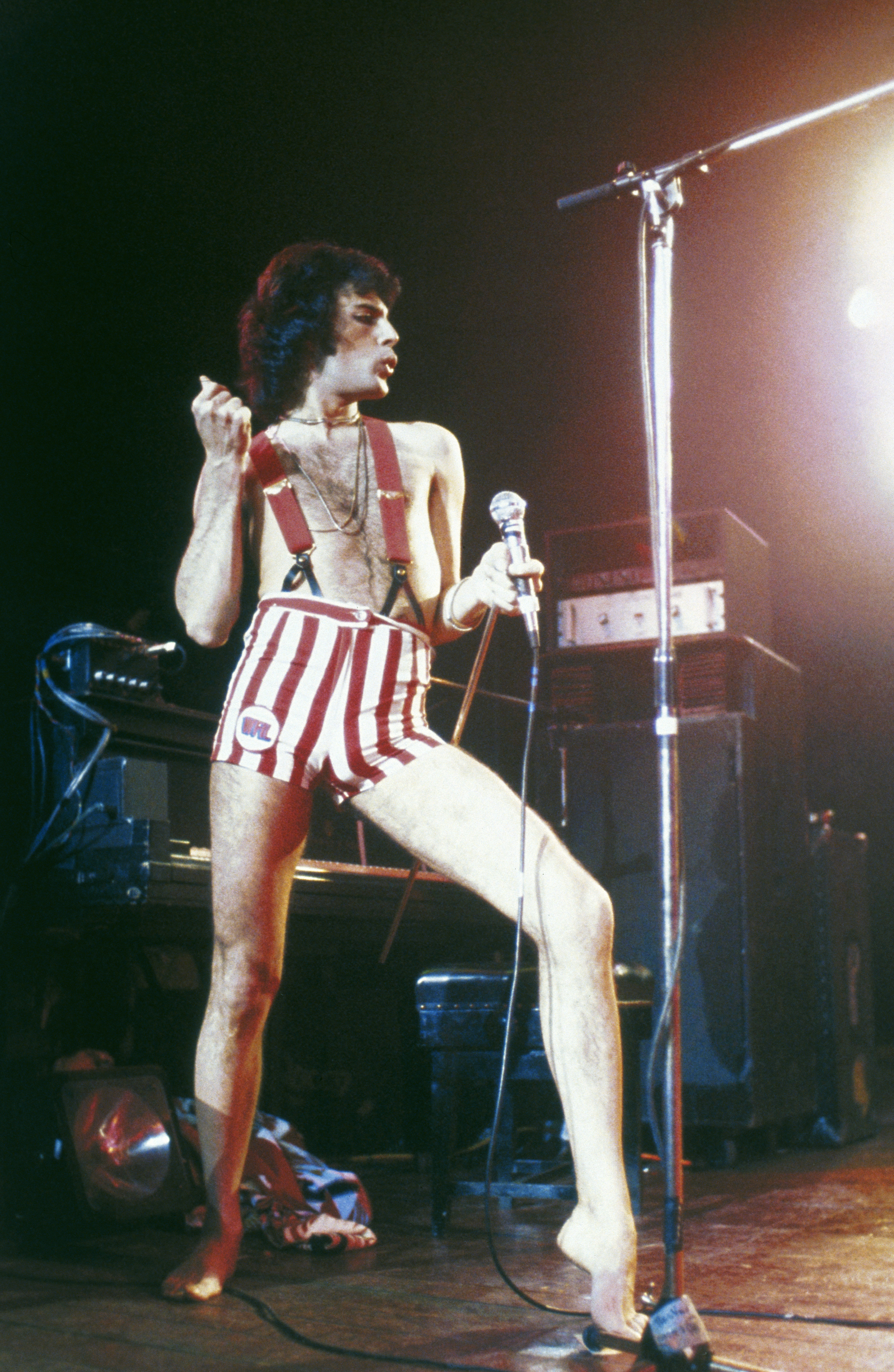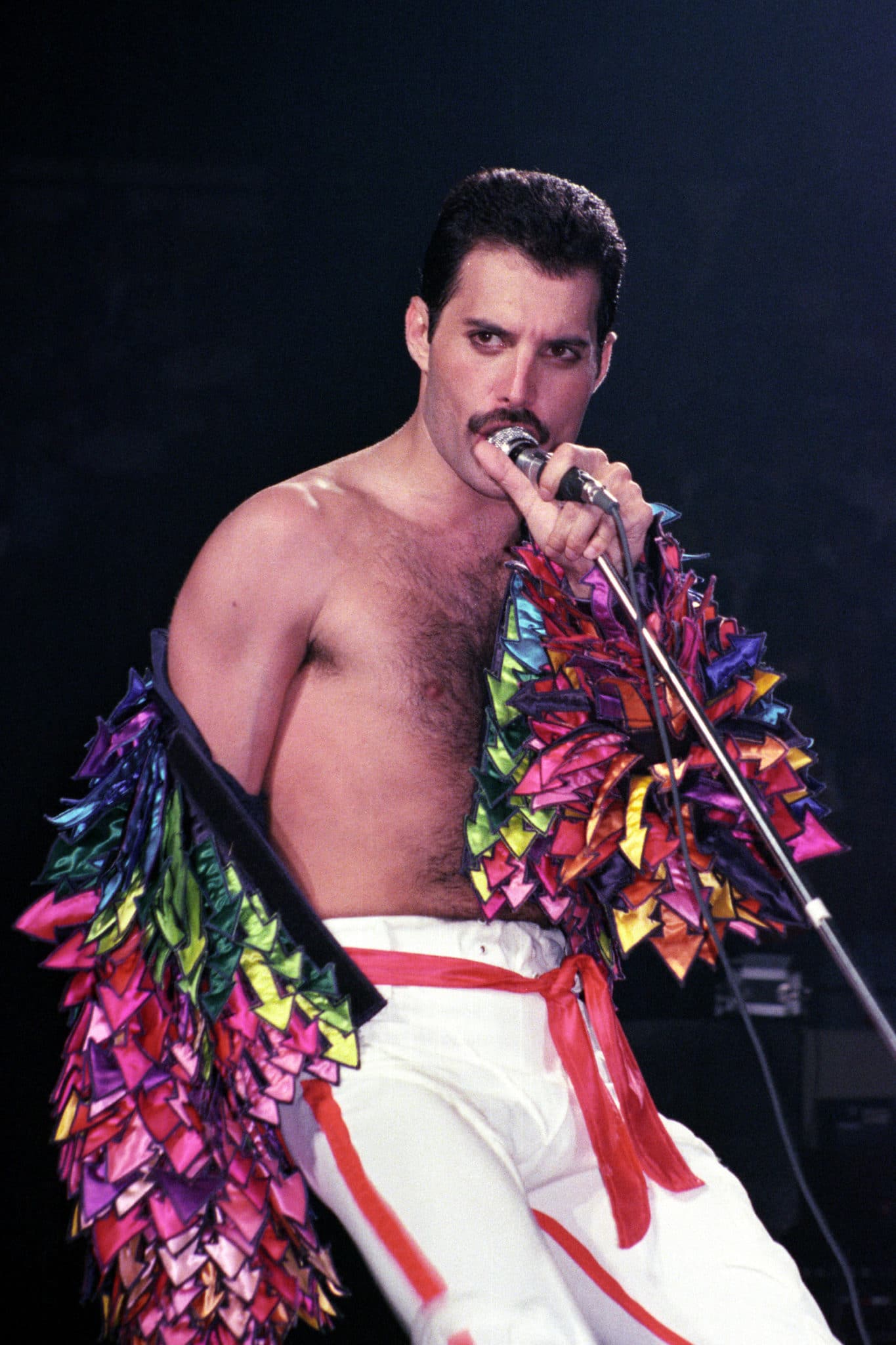How Freddie Mercury’s selfless final act changed the lives of HIV and AIDS patients the world over

Freddie Mercury in Queen (Fox Photos/Hulton Archive/Getty Images)
Freddie Mercury’s death from AIDS complications 30 years ago today shook the world, and decades later his voice and memory are still cherished by millions.
The lead singer of Queen defied the conventions of a typical rock frontman, bringing a maverick flamboyance to the stage that was unlike anything before him. His legend was larger than life – so it makes sense that the legacy he leaves is larger than death, too.
While Freddie Mercury is remembered more for his music than anything else, in the months after he passed it was his AIDS diagnosis that made the headlines.
The music icon was fiercely private with the press and became something of a recluse in the last two years of his life, secluding himself behind the tall brick walls of his London home. He only revealed he was HIV-positive a day before he died.

(Michael Putland/Getty Images)
“I felt it correct to keep this information private in order to protect the privacy of those around me,” he wrote in a statement released from his death bed.
“However, the time has now come for my friends and fans around the world to know the truth, and I hope everyone will join with me, my doctors and all those worldwide in the fight against this terrible disease.”
Freddie Mercury spoke and the world listened. Five months later nearly a hundred performers, including Elton John, David Bowie and George Michael, gathered to give him “the biggest send-off in history” with a benefit tribute concert held at London’s Wembley Stadium in his honour.
It was attended by 72,000 people and broadcast live to a further one billion people in 76 countries, raising millions for AIDS research. The Mercury Phoenix Trust established in his name has since donated over $15 million to the cause.
It was a vital boost at time when president Reagan’s administration “was in total denial” about the AIDS crisis and few celebrities felt comfortable speaking up.
“Stars would have done nothing if the public was silent, if not for the extraordinary grassroots activism,” said Ronald Bayer, an expert on the history of AIDS, speaking to Time magazine.
But Freddie Mercury could never be defined by the disease that took his life, and nearly three decades later his legacy is more far-reaching than he could have imagined.

Freddie Mercury performs at Madison Square Garden on July 27, 1983 in New York City (Larry Marano/Getty)
The star was responsible for some of the era’s most iconic outfits and his unique style has left an enduring influence on the catwalk, according to Vogue.
He wasn’t averse to borrowing from womenswear, breaking free from boundaries and playing with gender norms in a way that resonates with countless designers today.
“Freddie’s style was very single-minded and always tight,” says stylist and creative consultant Charlotte Pilcher, drawing attention to his penchant for snug white trousers, skinny vests “and a seasoning of the ’70s US motorbike cop series Chips… with Versace glamour.”
From Saint Laurent’s velvet military jackets to Y/Project’s ruffled capes and Vivienne Westwood’s chest-gaping leotards, echoes of Freddie Mercury’s style remain all around us on both the catwalk and the high street.
He paved the way for a more confident, theatrical act among many of today’s contemporary artists which indelibly shaped the next generation of pop and rock music. He’s been cited as a musical influence by everyone from Faith Hill and Mastodon to Rob Zombie to Katy Perry, a testament to the diversity of his range.
“The first one I heard was ‘Killer Queen’ and ‘Don’t Stop Me Now’,” Perry told Forbes of her first Queen record. “‘Don’t Stop Me Now,’ all the analogies that are [in that song] are amazing.”
Even George Michael, an icon in his own right, aspired to Freddie Mercury’s phenomenal force. “[I was] going to see people like Freddie Mercury and realising that was something you wanted to aim at in terms of a physical presence on stage,” he said.
“Make no mistake about it, Freddie Mercury could’ve been singing opera with Pavarotti,” added the singer-songwriter Ben Harper.
This is truly his greatest legacy: how a boy named Farrokh Bulsara born on the Tanzanian island of Zanzibar earned his place in the pantheon of the greatest performers in history.
His vocals remain as vibrant today as they were 30 years ago, and though he died before his time the unshakeable cultural and musical impact he leaves behind means he and his work will endure far beyond his lifetime, and ours.

